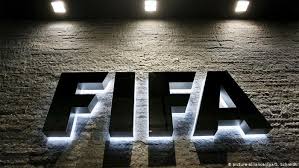May 23 – The transfer of FIFA’s legal department in its entirety to the world governing body’s new offices in Coral Gables in Miami is proving a disaster with reports that only 20 to 25 of the roughly 120 legal executives will complete the move.
This would leave the organisation woefully understaffed at a key time as it prepares for the debut of the expanded 2025 Club World Cup in the US and the 2026 World Cup which will have 48 teams competing for the first time in the US, Canada and Mexico.
The transition of legal personnel, announced in September 2023 by the FIFA Secretary General Fatma Samoura, expected the move to complete within a few months.
In reality the outcome of the announcement has been a mass exodus of senior legal personnel disillusioned with FIFA’s leadership, and moral at an all-time low.
One FIFA insider told Insideworldfootball that “this is a sinking ship. No-one works any more, people don’t receive answers internally, and member federations don’t either. With section heads leaving there has been the over-promotion of lawyers within FIFA who just aren’t ready for the role. This has led to more problems and chaos.”
FIFA is undergoing a recruitment process in the US, but finding legal specialists versed in the specifics of FIFA’s statutes, regulations and procedures, and the football business, is not a straightforward process.
FIFA’s law department has to not only know its own rules and regs, but also the mechanics of the football industry from transfer windows and deal structures, to the FIFA Clearing House, competition specific rules, as well as increasingly complicated broadcast and commercial sponsorship and licensing contracts.
On top of this the move to the US requires an understanding of US law and practices, which are different to European and Swiss laws. While Congress agreed to change a number of FIFA’s statutes last week in Bangkok, there are still multiple references to Swiss laws in the statutes, and the financial report is also audited in accordance with Swiss law.
There are also wider sports legal issues, in particular involving the Court of Arbitration for Sport (CAS) in Lausanne. In 2023 there were 431 objections to FIFA decisions at CAS, with the bulk of the proceedings requiring the presence of a FIFA lawyer.
FIFA president Gianni Infantino, who has faced criminal charges in Switzerland relating to his time as president (they were eventually dropped), has made much of his ‘FIFA is global, so we have to be everywhere’ mantra. Lawyers who do up sticks and move to Miami could find themselves on the move again in two years time.
FIFA has already encountered a number of legal issues in the US in the short term it has been operating there, particularly around its strict hosting and stadia requirements. In a legal market where how much money you have to spend on legal counsel can often prove more decisive than the argument itself, FIFA is in deeper water than it has encountered before.
FIFA has often pointed to the compensation agreement relating to money collected from the FIFAgate indictments in 2015 as evidence that they are golden in the eyes of US law. They have maintained that the US has praised the reforms introduced during Infantino’s presidency.
In an interview with the New York Times last week, a spokesman for the New York public prosecutor’s office explicitly rejected this, saying FIFA’s rules or governance standards were never addressed.
In a market where the president of Paramount once told reporters that his legal department was a profit centre, FIFA needs to find new lawyers, good ones, and fast.
Contact the writer of this story at moc.l1745931553labto1745931553ofdlr1745931553owedi1745931553sni@n1745931553osloh1745931553cin.l1745931553uap1745931553

